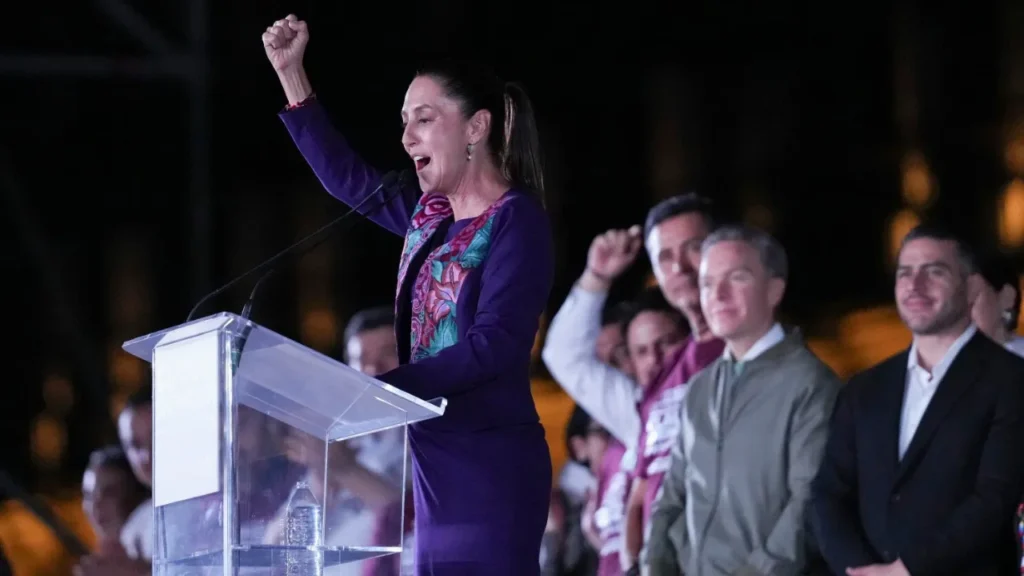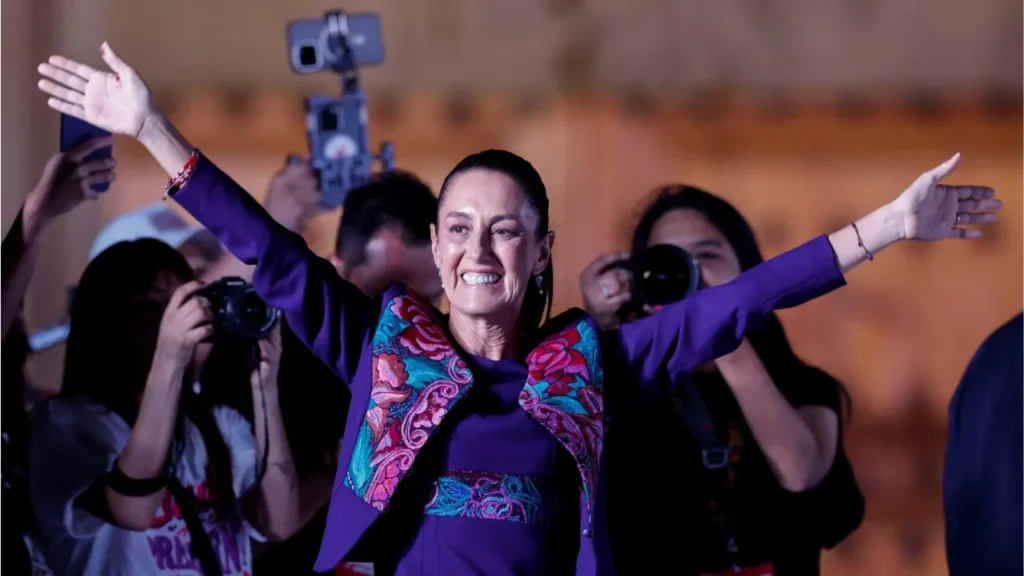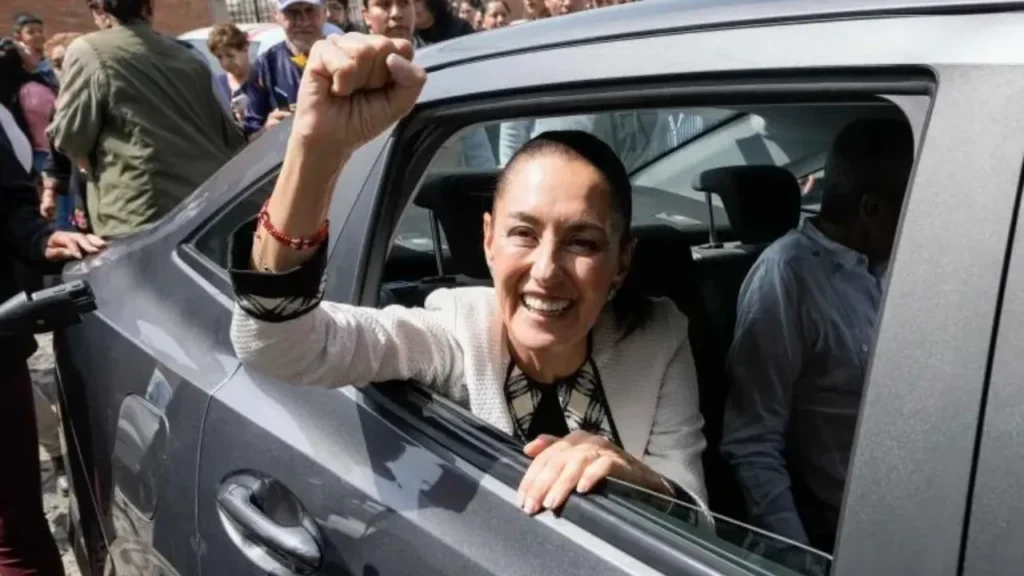Claudia Sheinbaum Pardo, the current Head of Government of Mexico City, is a trailblazer in many respects. As the first woman to be elected to this position, Sheinbaum represents a significant shift in the political landscape of Mexico. Her journey from a physicist and environmental scientist to a prominent political figure is not only inspiring but also indicative of the evolving nature of leadership in the 21st century. This essay delves into Claudia Sheinbaum’s life, her career milestones, and the qualities that make her a notable figure in Mexican politics.

Early Life and Education
Claudia Sheinbaum was born on June 24, 1962, in Mexico City. Her parents, Carlos Sheinbaum Yoselevitz and Annie Pardo Cemo, were both academics. Her father, an engineer, and her mother, a biologist, instilled in her a deep appreciation for science and education from a young age. Growing up in a household where intellectual curiosity was encouraged, Sheinbaum developed a strong foundation in critical thinking and problem-solving.
Sheinbaum pursued her undergraduate studies in Physics at the National Autonomous University of Mexico (UNAM), one of the most prestigious institutions in Latin America. Her academic journey did not stop there; she went on to earn a Ph.D. in Energy Engineering from the same university. Her research focused on renewable energy and sustainable development, areas that would later significantly influence her political agenda.
Claudia Sheinbaum Transition to Politics
Sheinbaum’s entry into politics was driven by her passion for environmental issues and social justice. She became involved with the Party of the Democratic Revolution (PRD) in the late 1990s, a period marked by significant political and social change in Mexico. Her technical expertise and commitment to sustainable development caught the attention of influential political figures, and she was appointed as the Secretary of the Environment for Mexico City from 2000 to 2006 under Mayor Andrés Manuel López Obrador.
During her tenure, Sheinbaum implemented various initiatives aimed at reducing pollution and promoting sustainable urban development. Notable among these were the introduction of the Metrobús system, a bus rapid transit system designed to reduce traffic congestion and emissions, and the promotion of renewable energy projects. Her work earned her recognition and respect, establishing her as a key player in the intersection of science and politics.

Mayor of Tlalpan and Further Political Ascent
In 2015, Sheinbaum was elected as the Mayor of Tlalpan, one of Mexico City’s 16 boroughs. Her tenure as mayor was characterized by a focus on transparency, community engagement, and sustainable development. She implemented policies aimed at improving public services, enhancing urban infrastructure, and promoting environmental conservation. Her leadership during the devastating earthquake that struck Mexico City in September 2017 was particularly notable. She coordinated relief efforts, ensured the provision of essential services, and advocated for the reconstruction of affected areas with a focus on resilience and sustainability.
Sheinbaum’s successful tenure as Mayor of Tlalpan paved the way for her candidacy for the Head of Government of Mexico City in 2018. Running as a candidate of the Morena party, founded by Andrés Manuel López Obrador, she campaigned on a platform of social justice, environmental sustainability, and combating corruption. Her scientific background and track record of effective governance resonated with voters, and she won the election, becoming the first woman to hold the position through a direct vote.
Head of Government of Mexico City
As the Head of Government of Mexico City, Claudia Sheinbaum has faced numerous challenges, including urban poverty, crime, and the COVID-19 pandemic. Her administration has focused on addressing these issues through a combination of innovative policies, community engagement, and data-driven decision-making.
One of Sheinbaum’s key initiatives has been the expansion of public transportation and the promotion of sustainable mobility. Under her leadership, Mexico City has seen the extension of the Metrobús system, the introduction of electric buses, and the expansion of cycling infrastructure. These efforts are aimed at reducing traffic congestion, lowering emissions, and improving the overall quality of life for residents.
In the realm of social policy, Claudia Sheinbaum has championed programs aimed at reducing inequality and supporting vulnerable populations. Her administration has implemented initiatives to improve access to education, healthcare, and housing. She has also been a vocal advocate for women’s rights, working to address gender-based violence and promote gender equality in all areas of city life.

Handling the COVID-19 Pandemic
The COVID-19 pandemic posed unprecedented challenges for Claudia Sheinbaum’s administration. Mexico City, being one of the largest and most densely populated cities in the world, faced significant public health and economic impacts. Sheinbaum’s response to the crisis was marked by a reliance on scientific expertise and data-driven policies.
From the onset of the pandemic, Sheinbaum emphasized the importance of transparency and communication. Her administration provided regular updates on the status of the pandemic, the measures being taken, and the resources available to residents. She worked closely with health experts to implement strategies for testing, contact tracing, and vaccination. Recognizing the economic hardships caused by the pandemic, Claudia Sheinbaum’s administration also rolled out support programs for businesses and individuals affected by the crisis.

Personal Life and Character
Claudia Sheinbaum’s personal life and character are integral to understanding her approach to leadership. Claudia Sheinbaum is known for her humility, work ethic, and dedication to public service. Her scientific background influences her methodical and evidence-based approach to governance, while her commitment to social justice reflects her deep empathy and sense of responsibility towards the community.
Claudia Sheinbaum is also a mother and has often spoken about the importance of balancing her professional and personal responsibilities. Her ability to navigate the demands of political life while maintaining a close connection with her family is a testament to her resilience and determination.
Legacy and Future Prospects
Claudia Sheinbaum’s tenure as the Head of Government of Mexico City is still ongoing, but her impact is already evident. She has brought a unique blend of scientific rigor and social commitment to the role, addressing complex urban challenges with innovative solutions. Her leadership style, characterized by transparency, inclusivity, and a focus on sustainability, sets a new standard for urban governance in Mexico and beyond.
Looking ahead, Sheinbaum’s future prospects in Mexican politics appear promising. Her successful governance of Mexico City has positioned her as a potential candidate for higher political office, including the presidency. Whether or not she pursues this path, her contributions to Mexican politics and her role as a trailblazer for women in leadership will continue to inspire future generations.
Conclusion
Claudia Sheinbaum’s journey from a young girl with a passion for science to the Head of Government of one of the world’s largest cities is a remarkable story of dedication, resilience, and visionary leadership. Her career is a testament to the power of combining scientific knowledge with a deep commitment to social justice and environmental sustainability.
As she continues to navigate the complexities of governing Mexico City, Sheinbaum remains a beacon of hope and progress. Her leadership not only addresses the immediate challenges faced by the city but also lays the groundwork for a more sustainable and equitable future. In a world where the intersection of science and politics is increasingly crucial, Claudia Sheinbaum stands out as a pioneering force, demonstrating that effective governance can be both innovative and compassionate.
